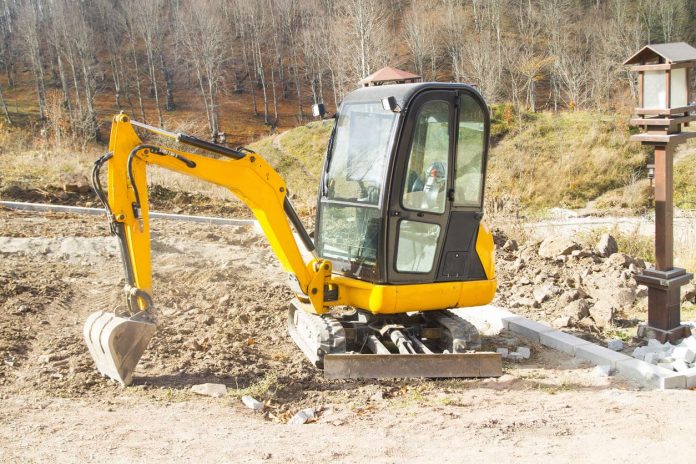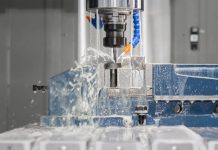Introduction
As the construction industry moves towards more sustainable practices, the focus on reducing environmental footprints has intensified. Mini excavators, with their compact size and versatility, are becoming increasingly crucial in this green evolution. Their relevance extends beyond just size; their technological advancements make them a pivotal tool in sustainable construction.
Technological Advancements in Mini Excavators
In recent years, the mini excavator sector has seen remarkable technological advancements, particularly focused on increasing fuel efficiency and lowering emissions in line with stringent global environmental norms. Modern mini excavators are now equipped with features like auto-idle and electric power systems that drastically reduce fuel consumption while cutting down on the carbon emissions traditionally associated with diesel engines. Additionally, these machines often incorporate advanced hydraulic systems designed to optimize energy use, which further enhances their operational efficiency. The development of cleaner engine technologies and the integration of systems that automatically adjust engine outputs based on the workload are also notable trends. These innovations reflect a growing commitment within the construction equipment industry to develop machines that are not only powerful and efficient but also environmentally responsible.
Environmental Benefits of Using Mini Excavators
Mini excavators have become a cornerstone in modern sustainable construction practices due to their numerous environmental benefits. Here’s a closer look at the specific advantages:
- Reduced Carbon Footprint: Mini excavators contribute significantly to lowering carbon emissions in the construction industry. Their ability to maneuver in confined urban spaces eliminates the need for larger, more polluting equipment, thus reducing the overall environmental impact of construction activities. For example, compared to a normal excavator, a kubota mini excavator, whose engine meets EPA Tier 4 compliance, can significantly lower carbon emissions.
- Operational Efficiency: The design and technology of mini excavators allow for minimized environmental disruption during construction. They operate more efficiently, which reduces the time they need to run, subsequently decreasing both fuel consumption and harmful emissions. This efficiency is crucial in projects aiming to achieve green certification or meet strict environmental regulations.
- Minimal Ground Disturbance: One of the standout features of mini excavators is their ability to preserve the natural terrain of construction sites. By causing less soil disturbance, they help maintain site integrity, prevent soil compaction, and reduce the likelihood of stormwater runoff, which can lead to erosion and water pollution—key factors in maintaining sustainable project sites.
- Resource Efficiency: The compact size of mini excavators not only requires less energy to operate but also less material to build. This efficiency extends to their maintenance, reducing the demand for raw materials and energy throughout their lifecycle and contributing to a circular economy in construction equipment.
Economic and Operational Advantages
Mini excavators, or small excavators, not only bring environmental benefits but also offer significant economic advantages, making them a cost-effective choice for a wide range of construction projects. Their low operating costs are derived from their fuel efficiency and the reduced need for maintenance, leading to a decrease in the overall expenses associated with construction activities. Furthermore, their high efficiency in operation allows for faster completion of tasks, which can considerably shorten project timelines and reduce labor costs.
Additionally, the ease of use and versatility of mini excavators enhance their value. They are capable of performing various tasks such as digging, grading, demolition, and landscaping with precision. This versatility means that companies can invest in a single piece of equipment rather than multiple machines for different tasks, optimizing their asset utilization. Mini excavators’ compact size also allows for easier transportation between sites, further reducing logistical costs.
Moreover, mini excavators are designed to be user-friendly, often equipped with advanced control systems that require minimal training. This ease of operation reduces the time it takes for new operators to become proficient, thereby increasing productivity and reducing training costs.
Case Studies
In a notable urban redevelopment project in San Francisco, mini excavators played a pivotal role in retrofitting old buildings with new foundations. The use of these compact machines led to a 30% reduction in total carbon emissions compared to traditional methods. Beyond the significant environmental benefits, the deployment of mini excavators also translated into a faster project completion time. This case effectively demonstrates how mini excavators enhance operational efficiency in practical applications, not only in terms of environmental impact but also in speeding up construction processes and reducing overall project costs. The project in San Francisco is just one example; similar outcomes have been observed in other cities where mini excavators have been utilized for urban renovation and infrastructure improvement projects, underlining their effectiveness in diverse construction environments.
Conclusion
Mini excavators are more than just equipment; they are a critical component of the movement towards sustainable construction. By embracing these compact, efficient machines, the construction industry can significantly reduce its environmental impact while maintaining productivity and profitability. As technology advances, the potential for mini excavators in promoting sustainability and efficiency in construction continues to expand.





































